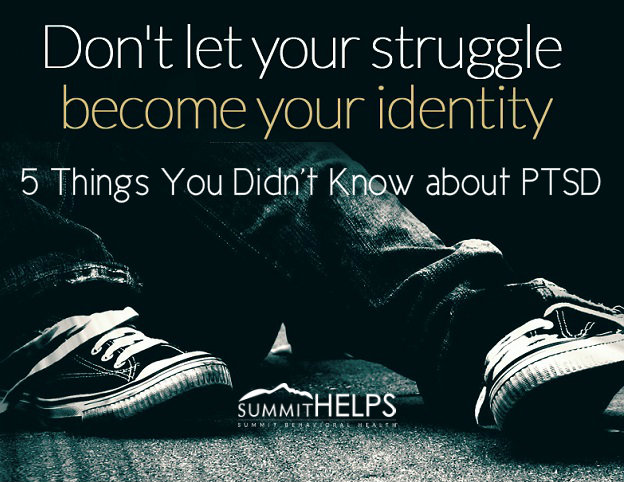When something traumatic happens to us, it is not unusual to need some time to recover afterward. An event like having experienced or witnessed a serious accident, a natural disaster, a violent assault, the sudden death of a loved one or a terrorist incident is not something that a person will be able to simply move on from overnight.
While most people eventually recover with time and proper support, someone with post-traumatic stress disorder (PDSD) is unable to pull out of the cycle of depression and anxiety months or even years after the incident. The following are things you may not be aware of regarding PTSD.
Things You Didn’t Know About PTSD
1. Symptoms May Not Appear Until Months Or Years After The Precipitating Event
A person can be diagnosed with post-traumatic stress disorder after experiencing symptoms for at least a month. The flashbacks, nightmares, emotional numbness and avoidance of people and places that are reminders of the trauma may not start until months or years later.
2. Not Everyone Diagnosed With PTSD Directly Experienced Or Witnessed The Trauma
Some people with this disorder who learned about a trauma that affected a family member or a close friend developed symptoms afterward. Others who develop PTSD, but did not directly experience the trauma are first responders who are exposed to repeated traumatic events through their work (i.e. police officers, firefighters, paramedics and emergency medical technicians).
3. More Than Two-Thirds Of People Exposed To Mass Violence Develop PTSD
Per the Anxiety and Depression Association of America, this figure represents a higher rate than people exposed to natural disasters or other types of traumatic events.
4. Women Are More Likely To Develop PTSD Than Men
Twice as many women as men develop symptoms of post-traumatic stress disorder. Children develop it as well. The disorder often co-occurs in conjunction with substance abuse, anxiety or depression, per the Anxiety and Depression Association of America.
5. PTSD Is Not A Character Flaw Or A Sign Of Weakness
If a person could be exposed to one or more traumatic events and walk away without ever giving them another thought, we would probably wonder about their ability to experience empathy or compassion. Depending on a person’s personality, emotional makeup, whether he or she has experienced traumatic events in the past, and other stressors, post-traumatic stress disorder symptom may develop. We don’t blame people who are exposed to a toxic environment if they develop cancer, so it makes no sense to blame those who need help for PTSD.
Co-Occurring Treatment
Here at Summit Behavioral Health, it’s not uncommon for us to see individuals coming to us for help who are dealing with both an addiction and a mental illness (co-occurring disorder or dual-diagnosis). We believe that treating post-traumatic stress disorder (or any other mental health disorder) must be done in conjunction with addiction treatment. By focusing on dealing with the deep-rooted reasons for the addiction, we help completely heal the entire person – emotionally, physically and spiritually.
Summit Behavioral Health offers supportive and professional co-occurring treatment for those dealing with both a mental health issue and addiction. We provide stress management, individual and group therapy, long-term coping skills and other services to our clients to focus on their successful long-term recovery.
Don’t Suffer For One More Day…You Really Don’t Deserve It – Call Us Now

